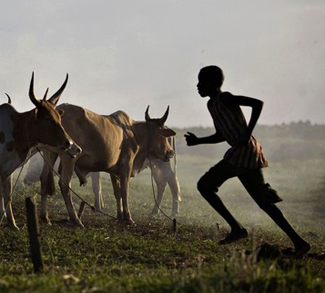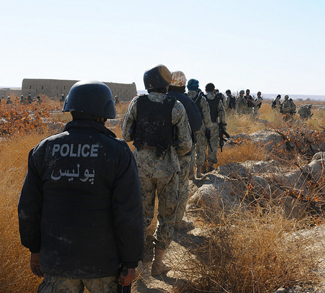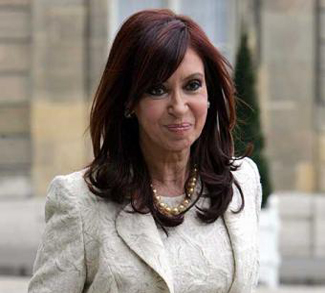FORECAST
As the January 2011 deadline for the Comprehensive Peace Agreement’s (CPA) referendum in Southern Sudan slowly draws nearer, the prospects for a stable and united Sudan are increasingly bleak.
This January marks the five year anniversary of the signing of the CPA; an agreement that brought an end to the conflict ravaging Sudan intermittently since 1956, killing two million people and displacing over twice that amount.
The CPA outlines a series of goals and benchmarks that stretch over the course of five years. It envisions a government in North Sudan- the current al-Bashir government in Khartoum- and a semi-autonomous government in the South, the Government of South Sudan (GoSS). The whole process builds up to two critical dates: national elections in 2010 (pushed back from 2009), and a referendum on Southern independence in 2011.
Unfortunately, as these key dates are fast approaching and much of the CPA remains unimplemented, a breakdown in the peace process seems imminent. It’s possible that this is no accident, for the stated end of the CPA process- possible independence for the oil-rich south- is unacceptable to many politicians in Khartoum.
As the CPA has come to symbolize hope in the peace process in Sudan, its’ failure will doubtlessly lead to renewed conflict in the coming years.
There are several factors breeding the mutual mistrust between North and South that can quite easily boil over into open conflict. For one, Southerners feel that they have not reaped any major ‘peace dividend.’ The South still lags far behind the North in a litany of development benchmarks: Hunger, female literacy, primary education, child immunization, infant mortality, and access to clean water to name a few. Over the past five years, the GoSS has failed to transform Sudanese oil wealth into progress on internal development, and many Southerners feel that the North is to blame for this.
There is a kernel of truth to this belief, as the government in Khartoum has been caught skimming Southern Sudanese oil revenues. According to Global Witness, an international NGO, there are discrepancies between the oil revenue figures used by Khartoum and those reported by the Chinese National Petroleum Corporation, amounting to a difference that ranges from 9 to 26 percent. An under-reporting of just 10 percent by Khartoum translates into $600 million of lost revenue for the GoSS. This is particularly damaging to the CPA process, because it undermines faith in the viability of oil sharing agreements within a united Sudan.
Sudanese oil considerations are frustrating another key component of the CPA: the demarcation of the oil-rich border between North and South. It is a benchmark that was supposed to be accomplished six months after the original signing of the CPA in 2005, but has since been delayed by a government in the North that is fearful of losing oil wealth to southern independence.
Spiraling violence and instability are always forerunners to organized conflict, and the South continues to reel from both. Inter-ethnic and tribal conflict in the South killed 2,500 and displaced 300,000 in 2009 alone. Moreover, civilians in Southern Sudan are the frequent target of cross-border raids by the Lord’s Resistance Army. The GoSS has not been able to establish any kind of effective internal policing apparatus, leading to widespread instability and popular dissatisfaction with the status quo.
If current trends persist, a southern vote for independence will be assured in any referendum held in 2011. The question remains: will the North let the oil-rich South leave? If the current overall climate and persistent rumors that the al-Bashir government is organizing and arming militias are any indication, then the answer is no.
SUMMARY OF EVENTS: January 4th – January 11th, 2010
NORTH AMERICA
United States
U.S. border security officials learned of the alleged extremist links of the suspect in the Christmas Day jetliner bombing attempt as he was airborne from Amsterdam to Detroit and had decided to question him when he landed, officials disclosed Wednesday.
The world reacted with a mixture of confusion and hostility yesterday to new US rules saying that people who come from any of the 14 nations on a “black list” of countries alleged to be hotbeds of terrorism must now undergo intense security screening at airports across the world.
WESTERN EUROPE
Slovakia
Irish police have released a man held over an explosives find, after Slovak authorities admitted planting them in his luggage as part of a security test.
EASTERN EUROPE
Russia
Russian President Dmitry Medvedev on Wednesday ordered the Federal Security Service to tighten security in the North Caucasus following a suicide bomb attack in Dagestan that killed six and wounded over 10 police officers.
MIDDLE EAST
Iran
A committee of the Iranian parliament has made a rare official criticism of treatment of opposition detainees held in the wake of the disputed election.
Unidentified men opened fire this week on leading Iranian opposition figure Mehdi Karoubi, an opposition website reported on Friday.
A diplomat at the Iranian embassy in Norway told Norwegian television on Wednesday that he had resigned in protest over a crackdown on demonstrators in Iran but the government in Tehran denied the report.
Iraq
American counter-terrorism specialists and Saddam Hussein’s former intelligence officers have forged an unlikely alliance in Yemen to tackle al-Qaeda.
Yemen
President Barack Obama says he has “no intention” of sending US troops to fight militants in Yemen and Somalia and that Al-Qaeda’s activities are still centered along the Afghanistan-Pakistan border.
In its strongest language yet, Yemen’s government declared Thursday that there are limits to its military cooperation with the United States, warning that any direct U.S. action in this impoverished Middle Eastern nation could bolster the popularity of Islamist militants.
US military intervention in Yemen to help fight Al-Qaeda militants could backfire and strengthen the jihadists believed behind the botched attack on a US airliner, a top Yemeni official said Thursday.
Yemeni forces surrounded a suspected al Qaeda regional leader in a house near the capital after earlier arresting three militants wounded in a raid, security sources said, as the country cracked down on militancy.
SOUTH ASIA
Afghanistan
A defiant Afghan President Hamid Karzai defended his record on corruption in an interview broadcast on Friday, saying the issue that has damaged his reputation had been “blown out of proportion” by Western media.
Two former Blackwater contractors were arrested today on murder charges in the shootings of two Afghans after a traffic accident last year, according to an indictment obtained by The Associated Press.
Al-Qaeda said the suicide bombing at a US base in Afghanistan that killed seven CIA agents was “revenge” for the deaths of militants in US drone strikes in Pakistan, the US monitoring group SITE said on Thursday.
Sri Lanka
A UN human rights official has urged Colombo allow an impartial investigation after he concluded that video footage allegedly showing Sri Lankan troops executing Tamil Tiger fighters last year is authentic.
EAST ASIA
China
China’s Defense Ministry on Friday expressed strong indignation and firm opposition to the U.S. arms sales to Taiwan, urging the U.S. to respect China’s core interests and immediately withdraw related arms sales items.




